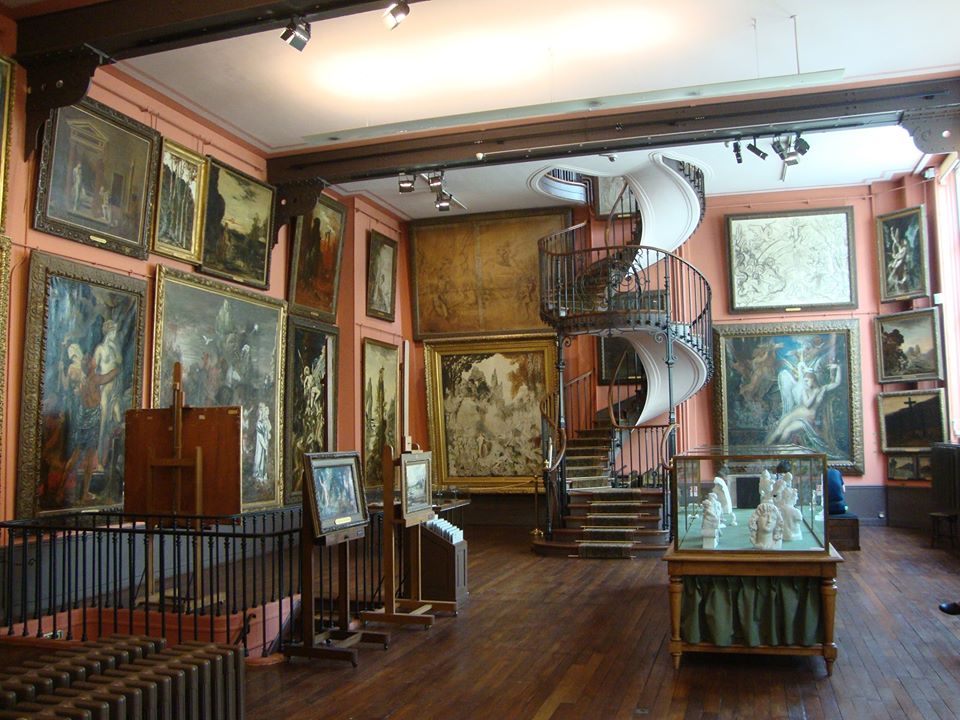
Over the past few decades, as I’ve witnessed the Milwaukee Repertory Theater’s presentations of plays from August Wilson’s Pittsburgh Cycle, aka Century Cycle, I have reached the conclusion that Wilson is the most important and most significant American playwright of the 20th Century. With a play set in each decade of the 20th Century, most of which occur in Pittsburgh, Wilson shows us how much has changed in America over that one hundred years while how little has changed around race relations and civil rights. Set in 1948, Seven Guitars represents the status of race and hope and poverty and desperation in post war America for its black citizens. And this is a very accurate and direct portrayal. But Wilson’s plays go beyond that and all of us will recognize the humanity in the characters and the longing for love and family and community that Wilson invites us to understand. And there is one other item here as well…how those with mental illness were/are treated in America, particularly if they are people of color.
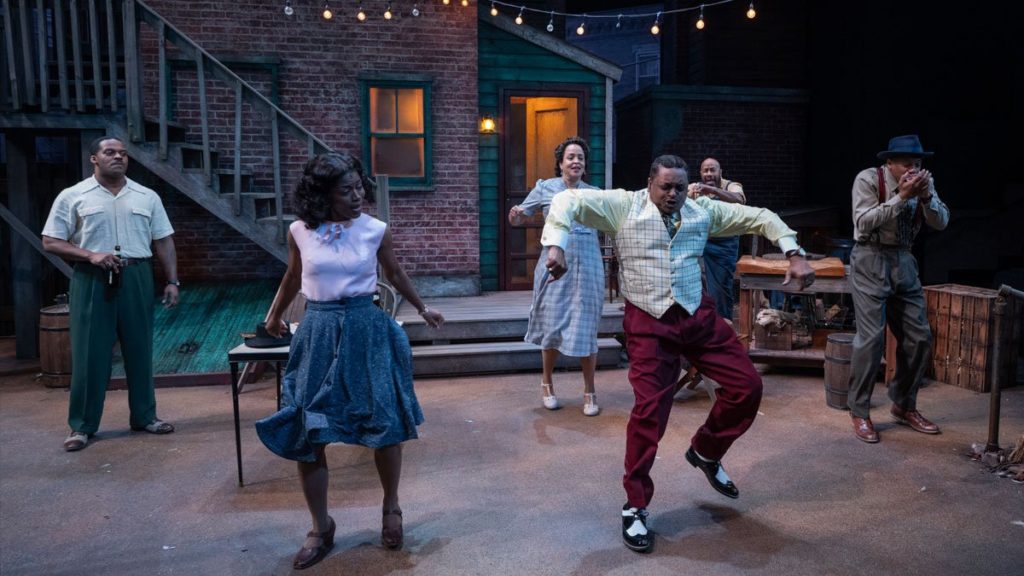
And those of us who live in mid-size cities in America will probably feel the urban environment that Wilson provides for us in his description of Pittsburgh. And we will certainly recognize the back yard of the probably turn of the 20th Century apartment building so accurately portrayed by scenic designer Shaun Motley and the Rep’s crew.
Seven Guitars opens and closes with his friends and neighbors discussing his funeral…he being blues musician, Floyd ‘Schoolboy’ Barton…with the central play presenting his hopes and dreams, his frustrations, and his untimely death as he works to being a famous and successful blues musician. His desire will be familiar to a great number of us who ran out to buy our first guitar after seeing the Beatles on The Ed Sullivan Show (which ironically started in 1948). And the music will be very familiar to much of the same cohort who discovered American blues music through the likes of the Rolling Stones, the Animals, John Mayall, Cream, and Jimi Hendrix, But Barton has indeed released a hit record and has a letter from the record company requesting that he record additional tunes!
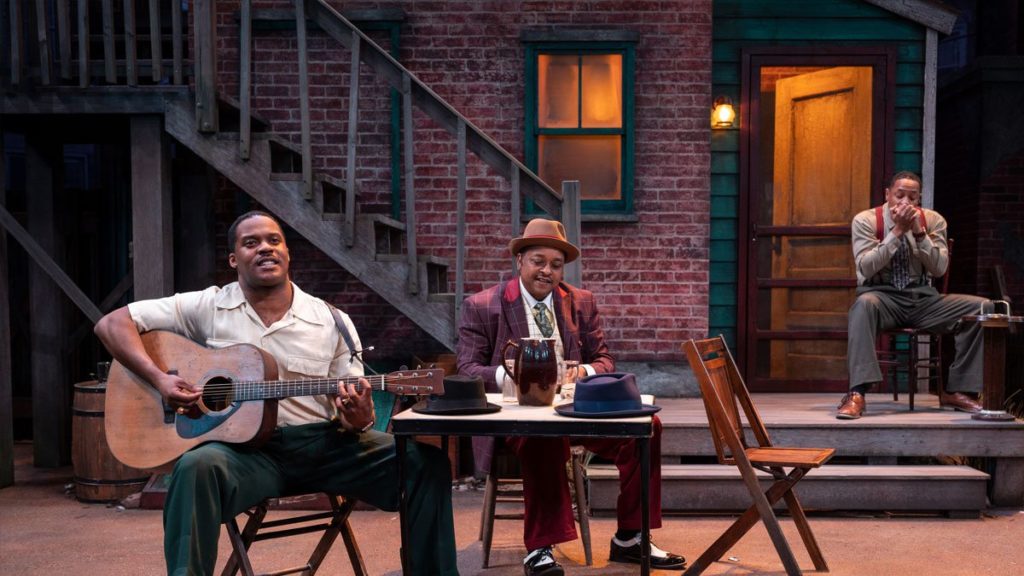
So, Dimonte Henning, portrays Barton on his return to Pittsburgh from the great recording Mecca of Chicago. He’s here to round up his musician partners, Canewell, an incredible blues harp (harmonica) player, played by Vincent Jordan, always with his harmonica at the ready, and drummer Red Carter, played by Bryant Bentley, who can tap out a rhythm almost anywhere.
But his main goal is to coax his former girlfriend, Vera Dotson, to also accompany him to Chicago…an idea that, Kierra Bunch, as Vera, admirably and strongly resists at first until Barton finally wears her down with his charm and determination.
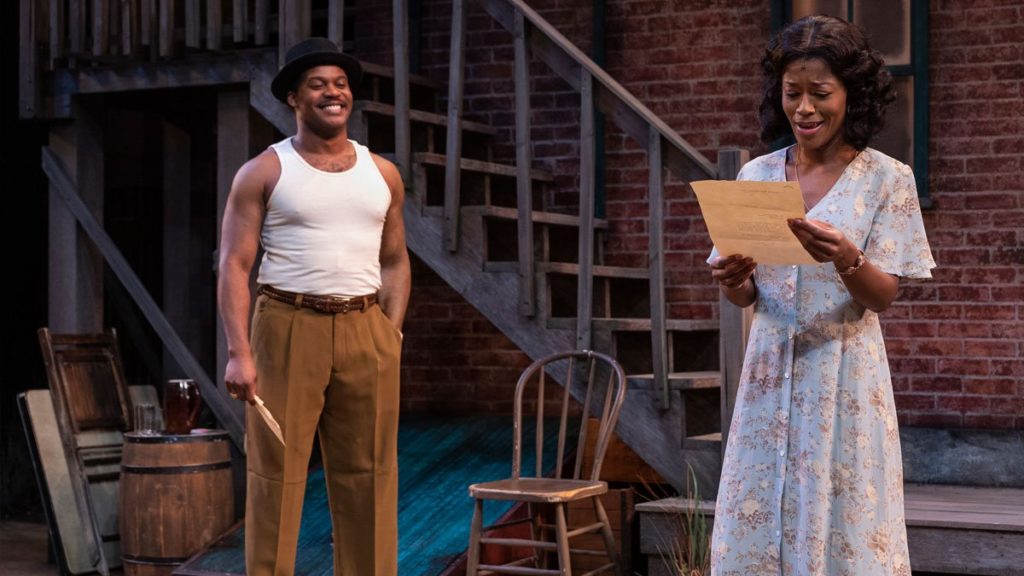
But there are any number of set backs. Barton spends some time in jail for vagrancy. Despite having a hit record…he hasn’t been paid hit record type royalties. And there are problems getting his electric guitar out of pawn and issues with his would be manager and of course getting everyone to agree with his dream! But he works through the issues and seems set on his way…except the real and an imagined world get in the way…resulting in his death.
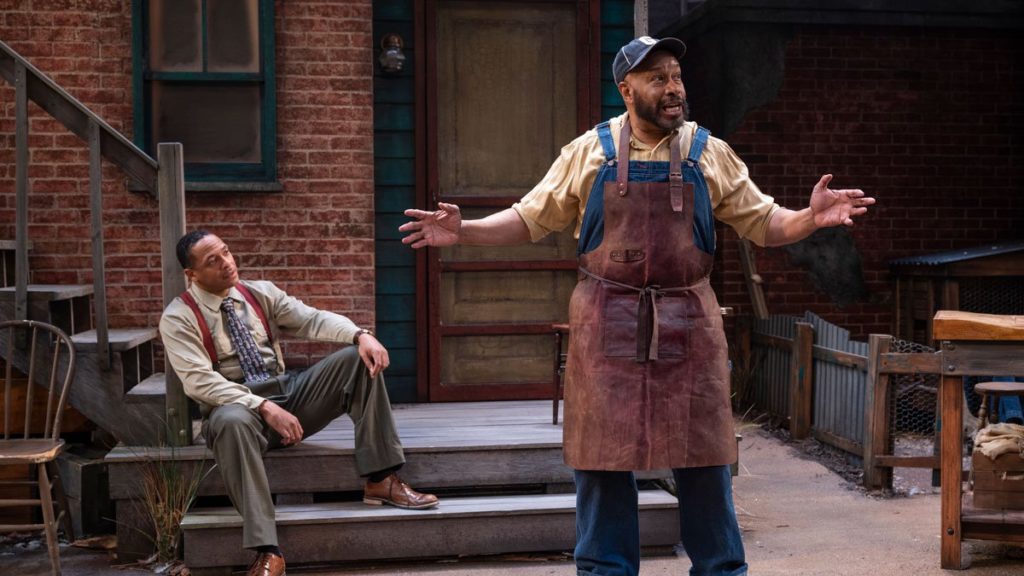
The other characters here are Louise, the apparent landlady, and neighborhood anchor played with calm and wisdom by Marsha Estell. Her in trouble niece, Ruby, Saran Bakari, who shows up to stay with Louise for ‘a while’. And Hedley, played by Kevin Brown, another resident of the building who is suffering from tuberculosis and has some mental health issues. All three contribute to the understanding of how race impacts the lives of average Americans in so many negative ways and round out a vibrant neighborhood.
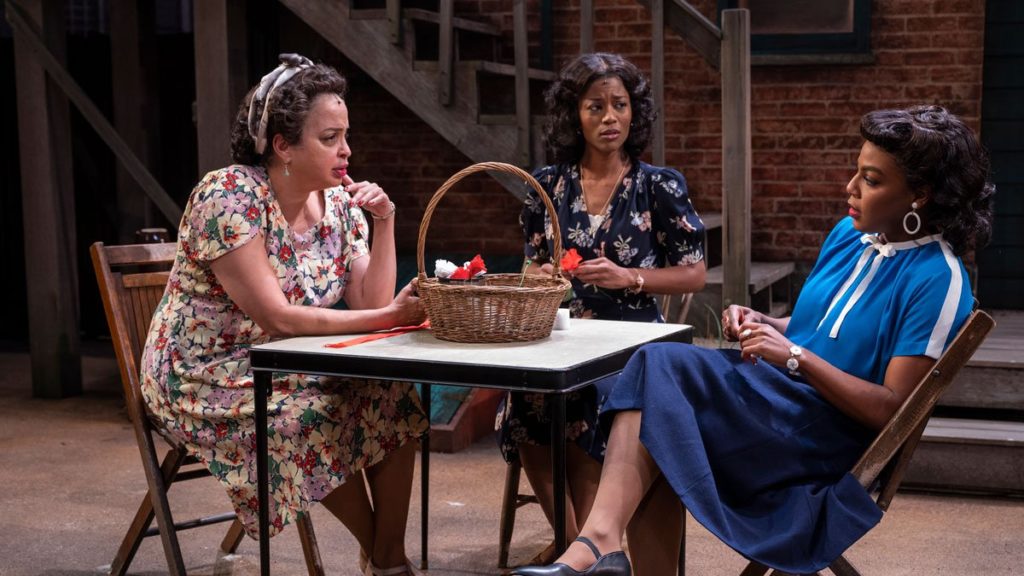
Director Ron OJ Parson, insists on having the characters tell the story front and center and he has done a masterful job here. And it certainly wasn’t easy, given seven major characters, and what seems to me, to be Wilson’s wordiest play (running time is three hours plus an intermission).
And I won’t go into detail, but you will put a glamorous job as stage hand out of your mind as you watch the stage reset during intermission. When you attend you will understand!
Seven Guitars is running through April 2, 2023, at the Rep’s Quadracci Powerhouse Theater. More information about the production and ticket ordering info is here:
Extra Credit Reading: Program.
If you are not familiar with August Wilson yet, this is worth the peek before you go: Play Guide.
